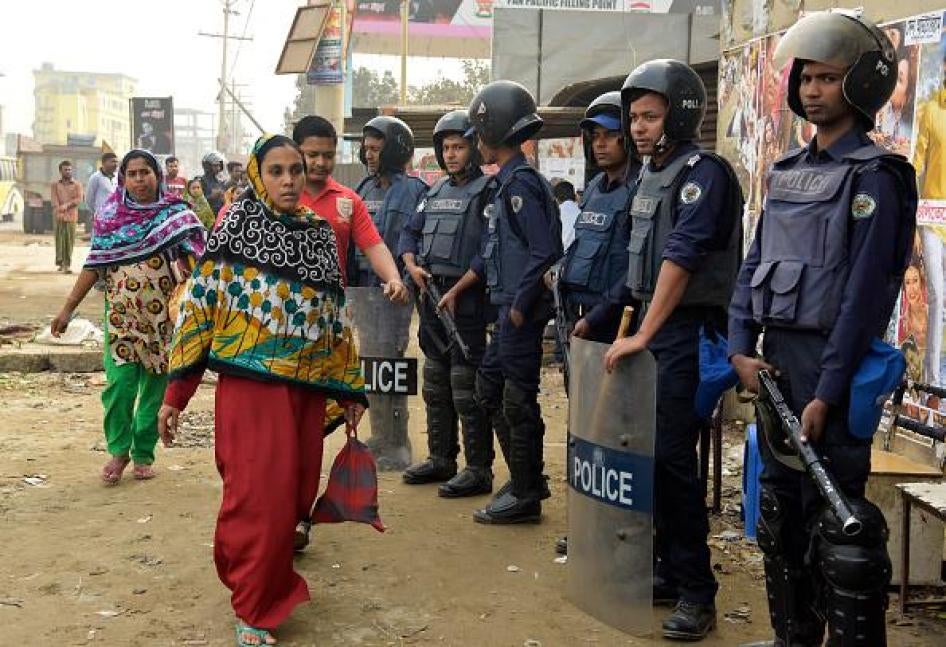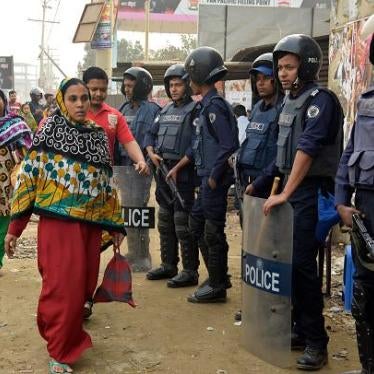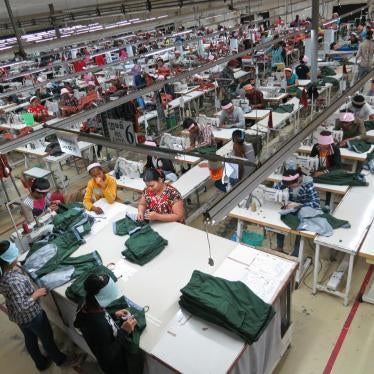A crash in slow motion—it’s the only way one can describe the looming economic fallout should Bangladesh refuse to extend the Accord on Fire and Building Safety. In just one week’s time the Bangladesh government may force this landmark agreement to stop operating out of Dhaka, a disaster for apparel workers’ safety in an industry scarred by tragedy.
This is because Smart Jeans Ltd., a Bangladeshi manufacturer, challenged the Accord in court. The Bangladesh High Court in May ordered the Accord to end its operations by November. The Accord has appealed the High Court’s decision, in hopes that it will be allowed an extension to 2021. This is precisely what the Bangladesh government and the Accord leadership agreed to in October 2017. The government also set up a Transition Monitoring Committee, as agreed upon with the Accord leadership to determine how and when its transition out of Bangladesh should proceed.
Exposed Risk
If the Bangladesh Supreme Court rules against the Accord, it will have to scale back operations, exposing global brands to heightened risks. Global apparel brands cannot afford to risk another factory disaster. As of mid-November, more than 500 factories reportedly risked losing business from Accord brands if they did not expedite repairs to make their premises safe for workers by the end of this month. But without the Accord, the robust monitoring and follow-up cannot happen.
The Bangladesh government and industry associations can’t tell the courts how to rule, but they can and should let the court know that they support the Accord. Instead of opposing the appeal, the country’s powerful industry associations should petition the court to extend the accord. It is their responsibility to protect factory workers’ safety but is also in their own self-interest from a business viewpoint to do so.
For its part, the Bangladesh government should bring key facts to the court’s attention. Since May 2017, the government’s Remediation Coordination Cell has made progress in developing its capacity. But it still does not match the Accord’s capacity or infrastructure. It certainly cannot absorb all of the Accord’s work starting in December. Building its capacity will take years and needs careful planning and resources. The alternative risks leaving workers to toil in unsafe factories, thereby and potentially undoing all the Accord’s successes and prompting international brands to take their business elsewhere.
The Accord has caused consternation among many Bangladeshi factories. Because of its collective brand power and legally binding nature, factories failing to take time-bound corrective action are eventually terminated from the Accord’s program.
Termination is akin to being blacklisted. Once terminated, none of the more than 200 Accord brands can do business with the factory. This model of collective business consequences for non-compliant factories disrupted the cushy culture of business as usual for brands and factories.
Yet, the anger felt by Bangladeshi manufacturers is not entirely unreasonable. While brands have put their collective weight behind a much-needed credible fire and building safety program, their contribution to the costs of social and labor compliance has been entirely inadequate.
Purchasing Practices
A 2018 study by the Center for Global Workers’ Rights based on a supplier survey of 211 Bangladesh suppliers of international apparel brands (not just Accord brands), concluded that “in all major product categories we find a decline in nominal prices paid per unit [garment].” Between 2011 and 2016, the price drop for garments exported to the US was about 11 percent, in comparison to a 9 percent decline for EU apparel exports. Bangladeshi manufacturers are right to feel outraged by the hypocrisy brands display when they demand expensive improvements while insisting on cut-rate prices, and in that they will find support from workers and labor advocates.
Over the course of the last few months, Human Rights Watch has been conducting research on brand purchasing practices in other countries, doing in-depth interviews with manufacturers willing to anonymously speak about how brands’ poor purchasing practices have impacted labor compliance in the factory. Brands are clearly contributing to problems inside factories with their poor purchasing practices.
It is important to expose and rectify the ways brands contribute to problems the Accord means to solve. Recent studies have shown that the way brands do business with factories has a direct bearing on factories’ social and labor compliance. In a 2016 global survey of suppliers conducted by the International Labour Organization (ILO) and the Ethical Trading Initiatives, 52 percent of suppliers in Bangladesh reported that buyers bought apparel below the production costs. The survey also found that relatively few buyers were willing to adjust prices when minimum wages were increased—forcing manufacturers to bear the whole brunt of those new costs.
Better Buying, a new industry initiative, gives the manufacturers the opportunity to anonymously provide information about brands’ purchasing practices. Its aggregate reports publicly name brands that have been ranked. Each brand that is ranked can ask to see a private report about its purchasing practices. The number of manufacturers headquartered in Bangladesh who took the survey jumped from one to 37 between the spring and fall 2018 survey cycles. Overall, the number of suppliers who took the surveys dramatically improved between the first and second survey cycles: 156 suppliers from 24 countries to 319 suppliers from 38 countries.
Instead of opposing the Accord and risking harm to workers and the country’s economy, the industry’s association should actively support the extension of the Accord. They should also encourage members to take the Better Buying survey and answer the questions accurately and in detail. By doing so, they would help create credible information for investors. Generating more information is key to pushing back against brands being unfair business partners.
It’s a small but crucial step in a series of measures that brands should take to walk the talk. Brands’ poor purchasing practices can and should be fixed, but that can happen only if the court allows the Accord to stay. Otherwise brands may well flee Bangladesh because the risks are too high. Then factories, workers, and the brands would all lose.










